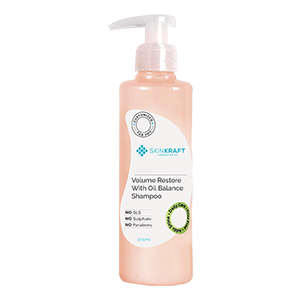We've all grown up with the same advice: don't go to bed straight after washing your hair. While you may believe that sleeping with wet hair can cause a cold, it turns out there is no truth to it. As a matter of fact, you need to be exposed to an infectious agent first to catch a cold.
But then again, going to sleep with wet hair can cause a completely different set of problems for your scalp and hair. It can even weaken your immune system, making you more susceptible to cold and flu.
In this article, we give you the scoop on how sleeping with wet hair really affects your hair and health. Keep scrolling for more.
Highlights:
Why Do People Go To Bed With Wet Hair?
One of the main reasons people sleep with damp hair is that they either lack the time or energy to dry it before bed. Some may prefer to wash their hair at night to avoid the morning hustle.
In some cases, people choose to sleep with wet hair as it helps them relax and cool down. According to research, cooling the brain can reduce its metabolic activity [2], which can help you sleep better, especially if you have insomnia.

Side Effects Of Sleeping With Wet Hair
1. Fungal Infection
Sleeping with wet hair can put you at an increased risk of developing a fungal infection on the scalp. Fungi, such as Malassezia, can cause conditions like dermatitis and dandruff.
When you sleep with wet hair, your pillow gets damp too. According to a study, [1] synthetic and feather pillows contain a substantial fungal load that thrives in moist and warm environments.
Pillows can be the primary source of fungal infection, which may have severe implications in patients with respiratory conditions like asthma or sinusitis.
2. Hair Damage
When your hair is wet, it's in a fragile state. This is why you need to take extra care of it right after washing. Just as you shouldn't tug or pull at your hair while it's wet, you shouldn't turn and toss around in bed. Each time you do so, you risk overstretching your hair shaft, leading to hair breakage and damage.
3. Weak Immune System
Sleeping with wet hair can worsen your immune system, making you more vulnerable to catching a cold and flu. If you sleep with the air conditioner on while your hair is wet, you may even fall sick.
4. Degradation Of The Hair Follicle
If you’re sleeping with wet hair regularly, then the moisture in your hair can damage your hair cuticle, which is the follicle’s protective outer layering.
Since the cuticle works as a shield, the water molecules can enter the inner portion of the hair follicle, damaging the cortex when it gets ruptured, leading to hair fall. Additionally, your hair may also lose its natural shine and luster.
5. Styling Takes Longer
Sleeping with wet hair can result in more tangles and knots, which means you will need to spend more time in the morning styling your hair.
6. Dull Hair
When you sleep with wet hair, your pillow may absorb natural oils and excess moisture from your hair, leading to hair that looks dull and lifeless.
How To Sleep With Wet Hair So It Looks Good In The Morning?

One of the most significant drawbacks of sleeping with wet hair is that you don't know how your hair will appear after waking up. You may even wake up with frizzy and crimped hair.
Here are some quick tips on sleeping with wet hair the right way to wake up with tame, tousled hair in the morning.
1. Allow your hair to air dry or blow dry before going to bed. It's the best way to retain its natural style. Moreover, it will also reduce the chances of your hair getting damaged.
2. Do not pull your hair up tight while sleeping because it can damage your hair, leading to breakage and hair fall.
3. Take a shower early in the evening, so by the time you go to bed, your hair is already air-dried, and its natural style is retained.
4. Use a silk pillowcase if you're sleeping with wet hair regularly. Silk pillowcase reduces friction, and you will save your hair from notable damage. It can also help your hair retain its natural style.
5. After a shower, wrap your hair with a cotton t-shirt to absorb excess water without damaging the hair.
6. Using a leave-in conditioner can help strengthen your hair. It also protects the hair cuticle from friction and allows easy detangling. Additionally, your hair will feel soft and smooth in the morning.
7. Change your pillow cover every other day to avoid any fungal growth in your bedding.
8. Studies [3] have proven that coconut oil prevents wet hair from getting damaged. So, if you need to sleep with wet hair, apply a few drops of coconut oil to your hair's ends.
Wrapping Up
Sleeping with wet hair can be bad for your hair in the long run as it may damage the cuticles and lead to hair fall. If you don't have the patience or energy to dry your hair thoroughly, you should at least towel dry it before your head touches the pillow. If you absolutely must sleep with wet hair, make sure it's not sopping wet or tied up tightly.
Recommended Products
Was this Article helpful?
- Least helpful
- Most helpful











